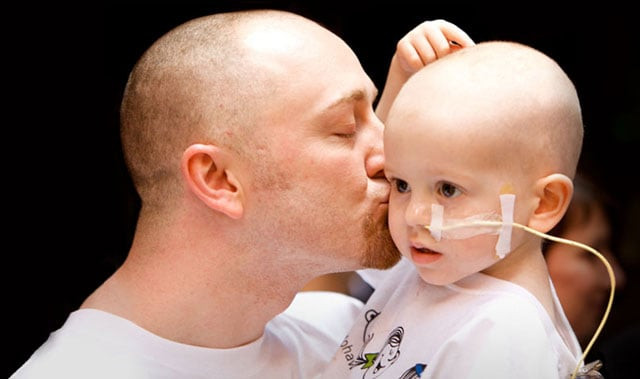12 ways to staying cancer-free
According to the study, tobacco is a major cause of cancer

A WHO study recommends people have a smoke-free and active life, more resistant to cancer-causing infections and substances. PHOTO: stbaldricks
The guidelines have been codified by the World Health Organisation (WHO) into 12 steps that is called the European Code Against Cancer.
Cancer kills 12,000 Pakistanis annually
Experts suggest that the dozen simple steps would help people reduce their risk of developing and dying from cancer. It recommends people have a smoke-free and active life, more resistant to cancer-causing infections and substances.
Dr Joachim Schuez, who led the research, explained "these are all recommendations where you can change your behaviour as an individual". Here are their guidelines:
1.Do not smoke. Do not use any form of tobacco.
According to the study, tobacco is the major cause of cancer. Smoking is the most harmful form of tobacco use, moreover, cigarette smoking kills up to half of long-term users.
2.Make your home smoke-free. Support smoke-free policies in your workplace.
Exposure to second-hand smoke at work and at home is associated with avoidable illnesses, including cancer. An overview of the damaging effects to health caused by tobacco use and inhalation of second-hand smoke is shown in the following figure:
 PHOTO: IARC
PHOTO: IARC3. Take action to be a healthy body weight.
4. Be physically active in everyday life. Limit the time you spend sitting.
The study recommends avoiding foods that promote weight gain, such as sugary drinks and fast foods; being moderately active for at least 30 minutes per day; breastfeeding (for women); eating mostly foods of plant origin; limiting intake of red meat; avoiding processed meats; as well as limiting consumption of alcoholic drinks.
5. Have a healthy diet:
This is more of points 3 and 4, which should be taken as emphasis added towards how important a part nutrition plays into leading a cancer-free life. Eat plenty of whole grains, pulses, vegetables and fruits.
Limit high-calorie foods (foods high in sugar or fat)and avoid sugary drinks.
Medical advice: ‘A healthy lifestyle can prevent cancer’
Avoid processed meat; limit red meat and foods high in salt.
6.If you drink alcohol of any type, limit your intake. Not drinking alcohol is better for cancer prevention.
7. Avoid too much sun, especially for children. Use sun protection. Do not use sunbeds.
While UVB is necessary for Vitamin D synthesis in human skin, that as well as UVA cause damage to the skin which, in the long term, can lead to skin cancers. Experts insist on using sunblock, even during cloudy days and the winter months.
8.In the workplace, protect yourself against cancer-causing substances by following health and safety instructions.
By employing car-share practices and using public transport individuals can also contribute to a healthier environment.
9. Find out if you are exposed to radiation from naturally high radon levels in your home. Take action to reduce high radon levels.
These are levels of radiation that are raised in your immediate environments, like your home or work place, through foundations that have unsealed openings and which might be unstable.
10. Breastfeeding reduces the mother’s cancer risk.
11. Ensure your children take part in vaccination programmes for:
Human papillomaviruses (HPVs) which can cause most cervical and anal cancers as well as a fraction of oral cancers;
Hepatitis B virus (HBV) and Hepatitis C virus (HCV), which can cause liver cancer; and Helicobacter pylori, which is a bacterium that can cause cancer of the stomach.
Cancer on the rise in Pakistan, says study
Human immunodeficiency virus (HIV) infection does not cause cancers directly but people with HIV have a greater risk of developing certain cancers because their immune systems are weakened.
12. Take part in organised cancer screening programmes for:
Bowel cancer (men and women)
Breast cancer (women)
Cervical cancer (women).
This is the complete list of moderately accessible methods and practices that have been studied to help avoid cancer.



















COMMENTS
Comments are moderated and generally will be posted if they are on-topic and not abusive.
For more information, please see our Comments FAQ